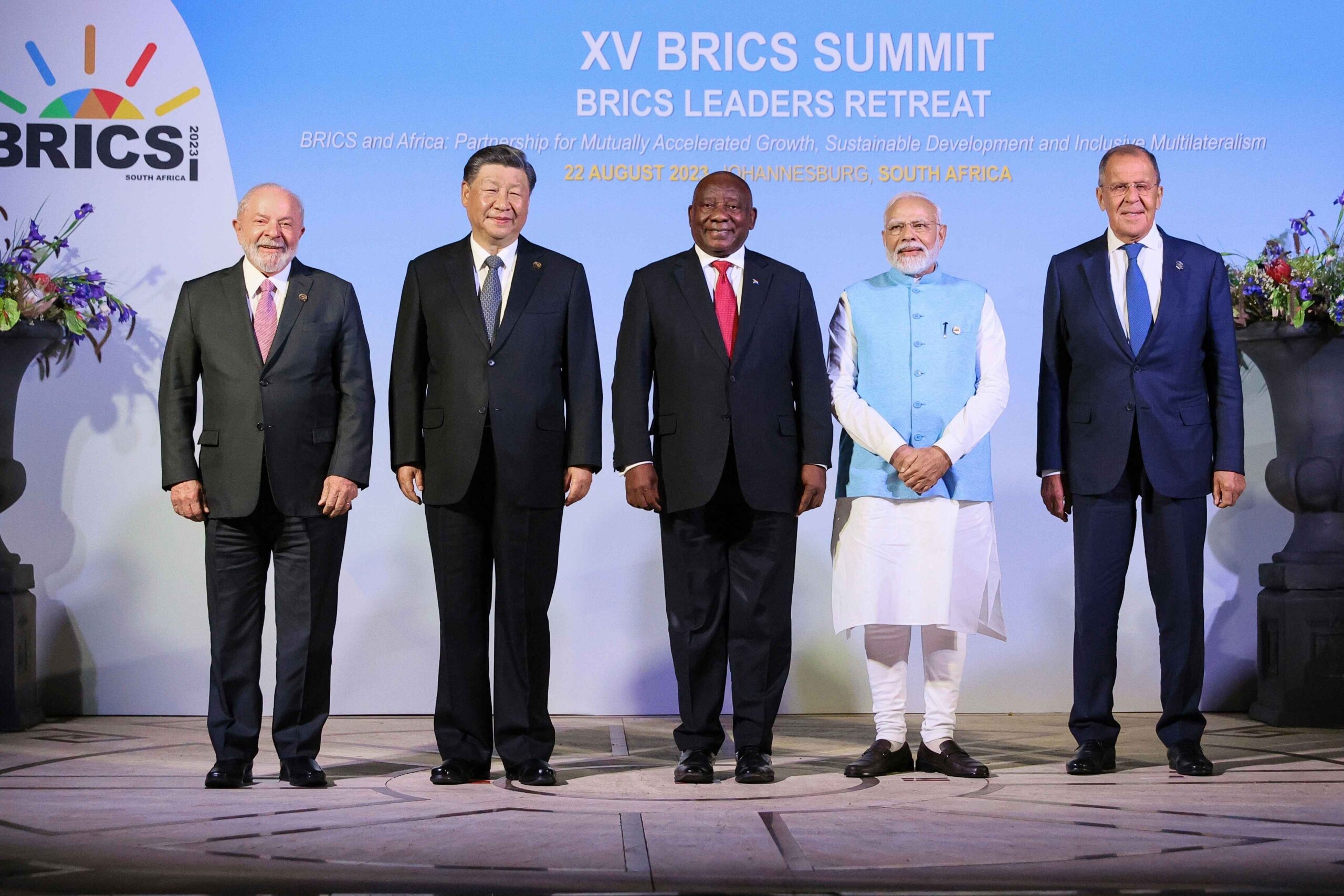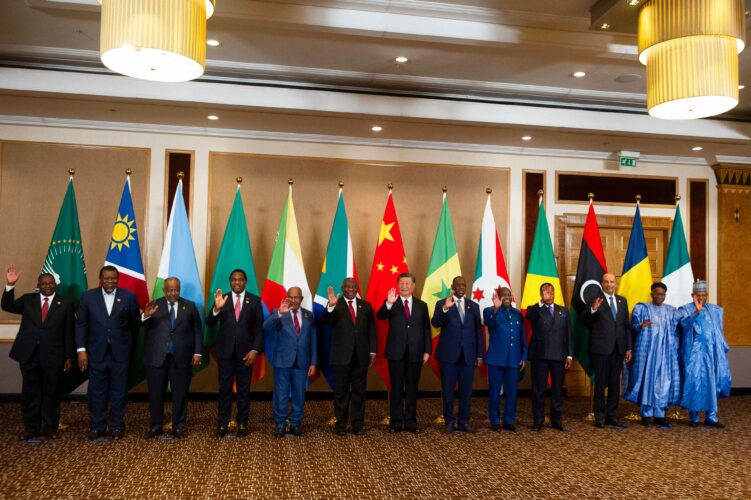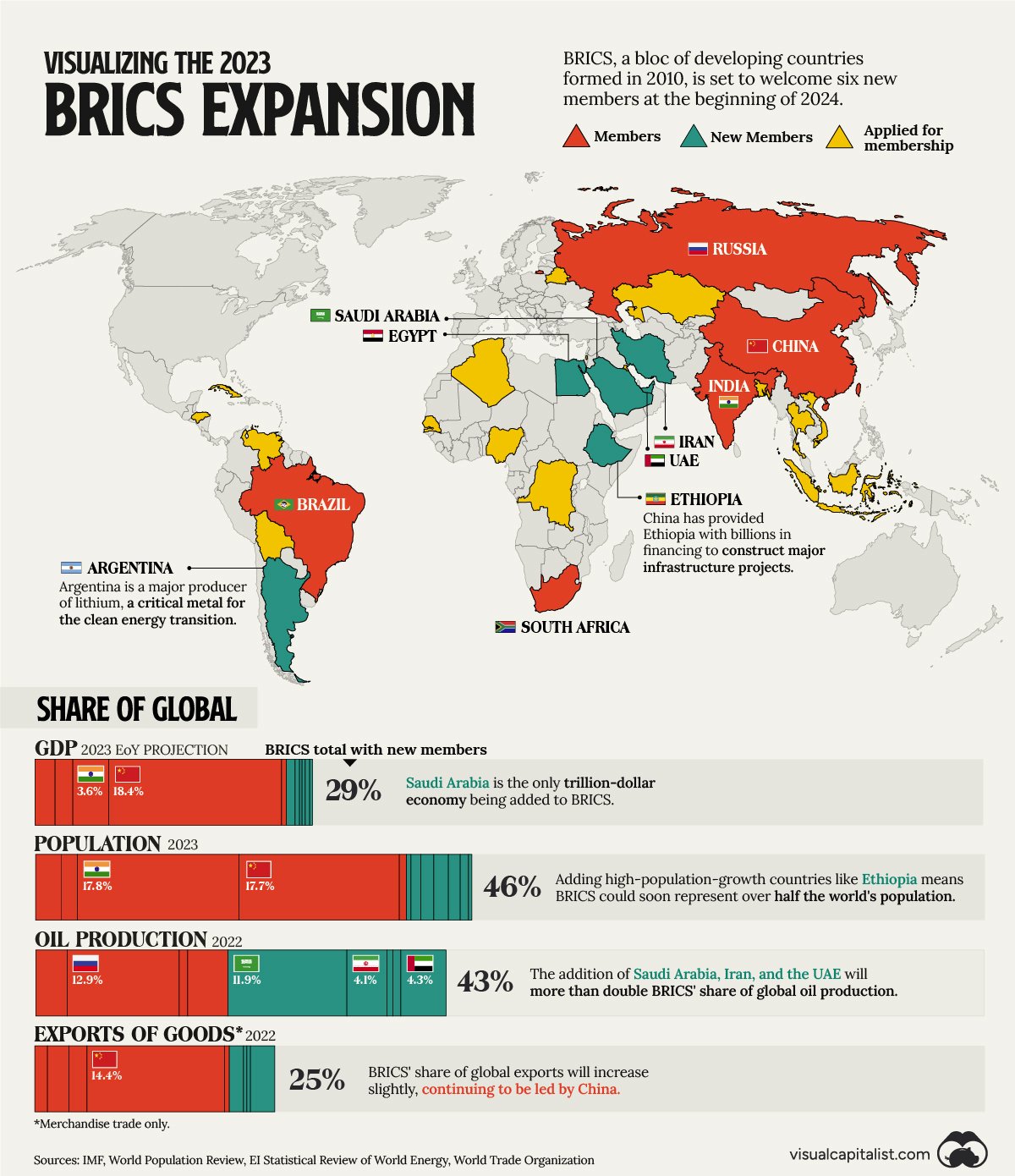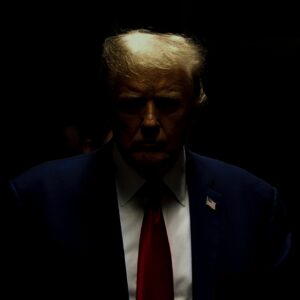BRICS, the league of developing nations consisting of Brazil, Russia, India, China, and South Africa, extended an invitation for six more countries to join their global economic alliance. During an ongoing summit in South Africa on Thursday, BRICS leadership announced that Iran, Saudi Arabia, Ethiopia, Egypt, Argentina, and the United Arab Emirates will be joining the coalition next year in a move aimed at countering the political and economic influence of the West.

South African President Cyril Ramaphosa, who is hosting the heads of the other BRICS nations in Johannesburg, announced that the six candidate countries will join the bloc as full members on January 1, 2024. The planned expansion was developed over the course of two days of closed-door talks between Ramaphosa, Brazilian President Luiz Inácio Lula da Silva, Indian Prime Minister Narendra Modi, and Chinese President Xi Jinping.
Russian President Vladimir participated virtually after his travel arrangements were complicated by an International Criminal Court warrant for his arrest in connection with the Ukraine War. Russian Foreign Minister Sergey Lavrov attended the summit as Putin’s proxy.
“This membership expansion is historic,” Xi said. “It shows the determination of BRICS countries for unity and development. Over the years, China has stood in solidarity with developing countries through thick and thin.”
Check out the keynote speakers and details for The Vault 2023 and secure your tickets!
The new members will formally join the BRICS alliance on January 1, 2024, paving the way for nearly 40 other interested nations to apply for admission. However, during the three-day Johannesburg summit, the coalition’s founding members reportedly butted heads over how many nations should be admitted and how quickly the expansion should take place. The final compromise over the six new states represents a deepening commitment to championing the advancement of “the Global South.”
The advancement should be a concern for American interests as it also represents a strengthening of the bond between Russia and China.
Initially formed in 2009 by Brazil, Russia, India, and China, the partnership expanded to include South Africa in 2010, creating a bloc that represents nearly 40% of the global population and one-quarter of global gross domestic product. However, BRICS’ failure to establish coherent goals has kept it from becoming a major player on the global stage.
But in the face of mounting geopolitical tensions between BRICS and the West, expanding its membership could potentially tip the scales. Notably, Saudi Arabia, Iran, and the UAE are three of the world’s largest oil producers—and all three are now economically allied with Russia and China.
Many of the other countries that have expressed an interest in joining all share the opinion that they are unfairly treated by organizations like the United Nations and the International Monetary Fund. Their calls for reforms are also beneficial for Russia and China, both of which have clashed with the UN and US economically and politically.
While South African officials pushed back against the idea that the expansion indicated an anti-Western stance, Putin and Xi both heavily criticized the US and its allies in their speeches, calling for a reduction in international tensions and bashing American financial sanctions.



















Add comment